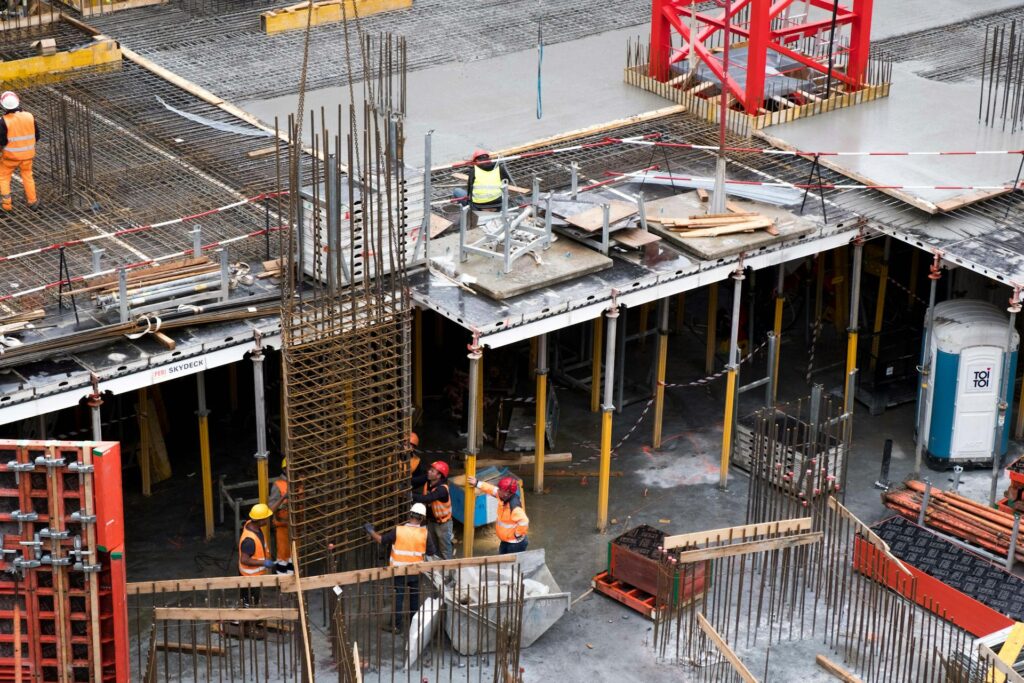Modular construction offers a significant opportunity for construction companies. This process provides solutions to improve efficiency and help lower frustrating industry statistics.
Modular construction provides relief to struggling construction companies, offering options during tough times. For example, many companies are working under labor shortages, rising raw materials prices, and tight timelines. Modular construction is a game changer, addressing some of these common challenges. It provides an efficient, quality, and sustainable method for building and produces results at a rapid pace.
According to the Construction Labor Market Report, there is a shortfall of 1.5 million homes in the US. Prefabrication may be able to help provide a solution for this problem. For construction companies, prefabrication enables work to be done offsite, making moving to this cost-effective construction method an ideal fit.
What Is Modular Construction?
Modular construction is a standardized process for designing and fabricating properties. This building method includes residential and commercial structures in modules at an offsite location. The company then transfers the modular components to the desired location before assembly.
Modules enable prefabrication, which is the process of building the main structural components of a building in a plant or manufacturing location. The company then transports the modules and assembles the components into the desired finished building.
Modular construction can occur in most sectors, assisting with residential, commercial, healthcare, and industrial projects. The size of the building is flexible, and design details enable versatility for site-specific needs.
Why Is Modular Construction Growing in Popularity?
Prefabrication offers several core benefits to companies across industries. Companies can expect to create modern structures that meet specific needs regardless of the industry. Consider some of the benefits of modular construction.
Faster Project Completion
Modular Building Institute data indicates that modular construction speeds up the project timeline. The timeline could speed up from 30% to as much as 50%, with significantly less onsite time. Much of the work is done in a factory. Being done in a factory means far less time on the ground, enabling construction companies to wrap up more projects.
Improved Quality Control
The prefabrication environment is standardized, which means it is also highly controlled. Prefabrication is unlike onsite builds, which often lead to uncertain conditions due to weather levels. The process happens in a fully controlled environment. One that is optimal standards, ensuring consistency.
Sustainability Benefits
Modular construction contributes to sustainable building methods for several reasons. It can:
- Improve efficiencies within the construction process greatly reduce construction waste. With 40% of landfill waste coming from construction, this is a significant environmental benefit.
- Preconstruction reduces the carbon footprint and the overall environmental impact. There is less need for onsite equipment, allowing for fewer carbon-heavy construction machines.
- Better energy efficiency due to a more controlled build also reduces costs. Since the majority of the work is done in a factory setting, it also enables organizations to use alternative sources of energy.
- Cost-effectiveness is also a core benefit. Because of the controlled environment, there are fewer onsite delays. Fewer delays lead to less overall labor required and more predictable budgets expected.
The Future of Modular Construction
Modular construction enables construction companies to remain efficient and move forward. Whether you are building mixed-use homes in urban environments or creating specialized healthcare settings in remote locations, modular construction can help.
Adoption of these methods is also beneficial in other areas. For example, rapid property development may allow for quick rebuilding efforts, which is helpful when a natural disaster decimates an area. The commercial industry also benefits from modular construction, which can create custom structures quickly.
Notably, the prefabrication industry continues to grow and enhance opportunities. One such example is the use of integrated smart building technology. Other examples include smart features to mitigate costly energy use and provide better insight into monitoring building construction integrity over time.
As consumers demand more affordable housing that is far more customized, the need for prefabrication will likely continue growing. The average construction company can use this method to scale business project completions. Prefabrication is much faster than it would be to grow its labor team enough to meet those demands.
Building in a Factory Offers Industry Enhancements
Modular construction is reshaping the construction industry. It provides a way to build more sustainably, faster, and cost-effectively. Most importantly, the process has little downside, as the same quality assurance standards can be met.
As prefabrication technology changes and grows into more mainstream solutions for modern construction teams, it will be more critical than ever to employ top talent to meet demand. Contact MRINetwork for the hands-on support you need.

Connect with MRINetwork